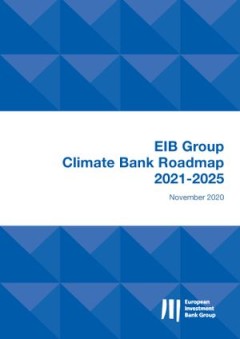Filter by

Nordic Checklist Food Contact Materials
Documentation of compliance with the legislation is a corner stone in the control of food contact materials (FCM). In-house control is an important pre-requisite to limit contamination from FCM and shall be based on the declaration of compliance and supporting documentation at the responsible business operators in the supply chain. The goal of this project was to develop a Nordic checklist on d…
- Edition
- -
- ISBN/ISSN
- 9789289343169
- Collation
- -
- Series Title
- -
- Call Number
- 650

Mapping of Nordic Creative and Cultural Industries
The creative and cultural industries (CCIs) have recently been debated widely, and access to finance has been at the forefront. This KreaNord report, created in 2012, maps the Nordic CCIs’ financial environment, and shows that the environment is facilitating the same access to corporate finance for CCIs as for other sectors. However, the supply of project finance requested by CCIs, is rare/no…
- Edition
- -
- ISBN/ISSN
- 9789289342520
- Collation
- -
- Series Title
- -
- Call Number
- 650

Unlocking Markets To Smallholders
This book assesses the institutional, technical and market constraints as well as opportunities for smallholders, notably, emerging farmers in disadvantaged areas such as the former homelands of South Africa. Emerging farmers are previously disadvantaged black people who started or will start their business with the support of special government programs. Public support programs have been devel…
- Edition
- -
- ISBN/ISSN
- -
- Collation
- -
- Series Title
- -
- Call Number
- 650

Overwhelmed by overflows?
This transdisciplinary volume investigates the ways in which people and organisations deal with the overflow of information, goods or choices. It explores two main themes: the emergence of overflows and the management of overflows, in the sense of either controlling or coping with them. Individual chapters show the management of overflows taking place in various social settings, periods and pol…
- Edition
- -
- ISBN/ISSN
- 9789198469813
- Collation
- -
- Series Title
- -
- Call Number
- 650

Improving food composition data by standardizing calculation methods
Food composition data is important in nutritional policy making. However, food analyses are expensive and to use analysed values only is not economically justifiable; hence recipe calculations are important for the quality of food composition databases. The aim with this project, financed by the Nordic Council of Ministers, was to improve and standardize the recipe calculation method. A general…
- Edition
- -
- ISBN/ISSN
- 9789289343107
- Collation
- -
- Series Title
- -
- Call Number
- 650

Competition Law and Economic Regulation
Shaping markets through competition and economic regulation is at the heart of addressing the development challenges facing countries in southern Africa. The contributors to 'Competition Law And Economic Regulation: Addressing Market Power In Southern Africa' critically assess the efficacy of the competition and economic regulation frameworks, including the impact of a number of the regional co…
- Edition
- -
- ISBN/ISSN
- 9781776140909
- Collation
- -
- Series Title
- -
- Call Number
- 650

Food Redistribution in the Nordic Region
The Nordic Food Redistribution Project investigates food waste reduction through the redistribution of surplus food. The project goal is to increase and improve redistribution activities from donors to food banks and charity organisations in order to enhance both environmental and social sustainability in the Nordic region. The phase II report proposes best practice models concerning legislatio…
- Edition
- -
- ISBN/ISSN
- 9789289344494
- Collation
- -
- Series Title
- -
- Call Number
- 650

Public Health Humanitarian Responses to Natural Disasters
The pressure of climate change, environmental degradation, and urbanisation, as well as the widening of socio- economic disparities have rendered the global population increasingly vulnerable to the impact of natural disasters. With a primary focus on medical and public health humanitarian response to disasters, Public Health Humanitarian Responses to Natural Disasters provides a timely critica…
- Edition
- -
- ISBN/ISSN
- 9781317357445
- Collation
- -
- Series Title
- -
- Call Number
- 650

Risk Quantification and Allocation Methods for Practitioners
Risk Quantification and Allocation Methods for Practitioners offers a practical approach to risk management in the financial industry. This in-depth study provides quantitative tools to better describe qualitative issues, as well as clear explanations of how to transform recent theoretical developments into computational practice, and key tools for dealing with the issues of risk measurement an…
- Edition
- -
- ISBN/ISSN
- 9789048534586
- Collation
- -
- Series Title
- -
- Call Number
- 650

The EIB Group Climate Bank Roadmap 2021-2025
The EIB Group Climate Bank Roadmap 2021-2025 outlines our goals for climate finance that supports the European Green Deal and helps make Europe carbon-neutral by 2050. It maps the next stages in the journey to a sustainable planet and provides a framework to counter climate change.
- Edition
- -
- ISBN/ISSN
- 9789286149085
- Collation
- -
- Series Title
- -
- Call Number
- 650
 Computer Science, Information & General Works
Computer Science, Information & General Works  Philosophy & Psychology
Philosophy & Psychology  Religion
Religion  Social Sciences
Social Sciences  Language
Language  Pure Science
Pure Science  Applied Sciences
Applied Sciences  Art & Recreation
Art & Recreation  Literature
Literature  History & Geography
History & Geography